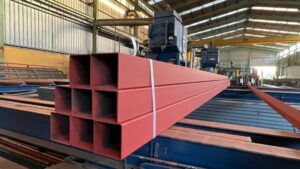
There is growing concern about the financial health of certain European steel service centres, with some sitting on high stock levels relative to demand and struggling with squeezed margins as they seek alternative destinations for material previously bound for the automotive industry.
Northern European service centres are extremely reticent to purchase given the uncertainty over prices, and as they do not want to have too much material by the end of the year. Those that have excess inventory are still destocking to free up working capital; this means the drop in apparent demand is still bigger than the reduction in real demand, which is feeding bearish sentiment.
The potential for any recovery in automotive demand in the fourth quarter is an added complication, especially in the north given the amount of coil that is sold to original equipment manufacturers.
One service centre has seen its order intake dwindle to almost nothing this week, and is operating at low capacity utilisation as a result. This situation is mirrored by some others, who are having to drop outsell prices to win business with little thought about replacement cost. The margin squeeze is also exacerbating the situation.
Given mill production cuts, weaker financials and the general economic environment, some credit insurers are reducing their appetite for the sector. This is particularly so in the UK, where Brexit and a host of issues at major mills and service centres have caused alarm. This is spreading from the decoiling sector into general steels stockholding.
While mills continue to bemoan their margin squeeze and cite high costs — for carbon as well as iron ore and coal — the cost push has so far failed to materialise because of sluggish demand. With the premium for northwest European HRC to China at just $19.56/t yesterday, and the negative margins of mills, something has to give.
Argus‘ daily headline northwest European HRC index was static at €471.75/t ex-works today, while the Italian index was also stable at €449.50/t ex-works.




